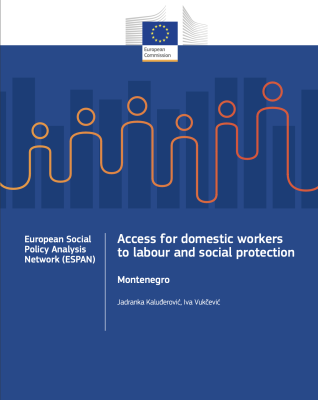Loading

 Description
DescriptionIn Montenegro the 2023 national Labour Force Survey data suggested that there were about 3,000 domestic workers, which constituted approximately 1.1% of the total workforce. Three quarters of these domestic workers were women, and most had a medium educational level. To improve the position of domestic workers in Montenegro, it is crucial to address the significant issue of their employment in the grey economy. A large number of domestic workers operate undeclared, which deprives them of the legal protections and benefits that come with formal employment. If these workers were registered, they would gain access to all the benefits provided to formally employed individuals, such as social security, healthcare, and labour benefits. Measures should therefore focus on encouraging registration. This might include simplifying the registration process, reducing administrative burdens, and providing incentives such as tax benefits or subsidies for both workers and employers. A major challenge hindering evidence-based policy-making is the absence of comprehensive data on domestic workers. Investing in rigorous research and data-collection initiatives specific to this sector is important to understand its dynamics, challenges, and demographics accurately. MONSTAT should enhance data-collection efforts by integrating specific inquiries into the LFS, targeting workers falling under the NACE 97 category ("activities of households as employers of domestic personnel"). This approach would ensure a more comprehensive understanding of demographic variables such as gender, age, and nationality, offering valuable insights into the domestic work sector.
Publication can be downloaded by clicking on this link.